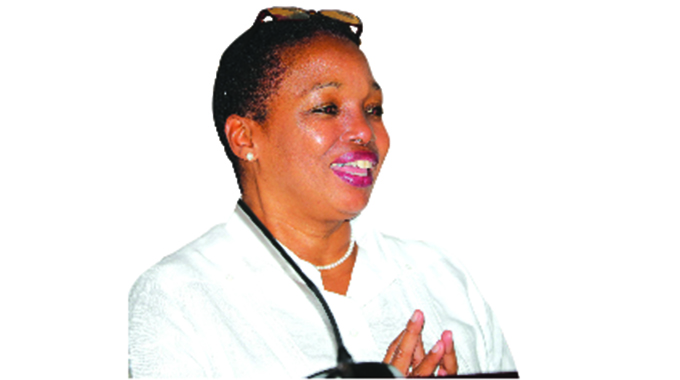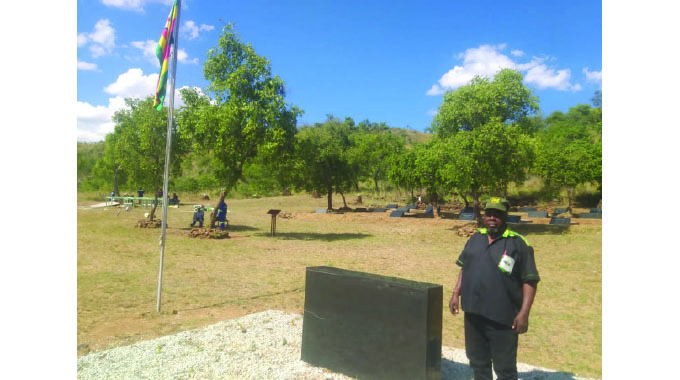‘Cuban medical diplomacy makes its mark worldwide’

Sifelani Tsiko Agric,Environment & Innovations Editor
Ever since revolutionary icon and extraordinary political figure Fidel Castro launched the Cuban medical doctor diplomacy soon after 1959, the Caribbean island nation has used this as a major source of diplomatic soft power and pride. Cuba has been sending medical teams overseas for decades in a bid to save lives and fight US sanctions for six decades.
Sifelani Tsiko (ST) our Agric, Environment & Innovations Editor speaks to Cuban Ambassador to Zimbabwe Carmelina Ramirez Rodriguez (CRR) on why Cuba has been sending its medical brigades to bolster struggling health services in both developing and developed European nations in the wake of the escalating coronavirus pandemic.
ST: Could you tell us how many Cuban doctors have been deployed so far in various countries to help fight the coronavirus?
CRR: Following the outbreak of novel coronavirus pandemic, many countries have requested the co-operation of Cuba. We have responded without hesitation and without considering political positions or economic advantages. Today, more than 2 300 medical collaborators — members of the Henry Reeve Medical Brigade, specialised in managing disaster situations and serious epidemics have been deployed to 26 countries to contribute to the fight against this disease. We couldn’t respond to all request because we also need to protect our own Cuban population.
ST: How many countries are benefiting at present from Cuban internationalism? Which countries are benefiting here in Africa?
CRR: Before the Covid-19 outbreak, Cuba already had more than 28 000 health professionals in 59 nations, among them 33 countries in Africa such as Angola, Argelia, Burkina Faso, Cabo Verde, Chad, Congo, , Eritrea, Eswatini, Ethiopia, Gambia, Ghana, Guinea Conakry, Equatorial Guinea, Kenya, Mauritania, Mozambique, Niger, South Africa, Tanzania and Zimbabwe.
ST: The missions supported by Cuba throughout the world continue in the midst of the escalating Covid-19 pandemic. Cuban epidemiologists and virologists played a crucial role in the fight against the cholera epidemic in Haiti after the 2010 earthquake. What is the major reason for providing such support, when your country is under sanctions?
CRR: The Covid-19 pandemic has become a challenge for most countries in the world. The World Health Organisation made a call for co-operation to face the global crisis due to the new coronavirus. For Cubans, solidarity is a universal human principle that has seen us supporting all global efforts to save humanity.
In Cuba it is cultivated at schools and at community level. Through this, we want solidarity to become part of humanity’s conviction and a part of the value system of our society. The first expression of the international health cooperation of the Cuban revolution was in Algeria, in 1963, a year after independence.
The Algerian government, faced by the lack of health professionals, requested for support. Since then, more than 400 000 professionals have served in 164 countries in Latin America and the Caribbean, Africa, the Middle East, Asia, and in Europe. Before the outbreak of Covid-19, Cuba already had more than 28 000 health professionals in 59 nations.
The American blockade puts a lot of constrains to our development. Even in the context of the pandemic, the US administration has increased sanctions against the Cuban people and banned the sale of medical supplies and medicines for the treatment of coronavirus patients. In April, the Cuban government denounced the loss of a donation of medical supplies to combat Covid-19 from the Chinese foundation Alibaba, which was not delivered because the US company contracted for the task backed out, at the last minute, citing blockade regulations. But without any political or economic consideration we said, yes, we are ready to help. This is our modest contribution to humanity.
ST: Critics accuse the revolutionary Cuban government of taking advantage of the Covid-19 crisis to gain business contracts and other benefits, while others charge that Cuba’s international efforts are simple opportunism to avoid total isolation. What is your comment on this?
CRR: Cuba is not isolated, the US has tried different ways to isolate us, but failed. They don’t like Cuban example. For 60 years Cuba has received the support and the solidarity of most of the countries of the world. We cannot forget the solidarity of Mexico when Cuba was expelled from the Organisation of American States, the solidarity and economic support of the former Soviet Union, China, and different African countries.
For the last couple of years, the US administration has been attacking Cuban medical co-operation and has demanded its allies in Latin America to cancel their health cooperation agreements. The Cuban doctors go voluntarily to those countries that request for cooperation either due to staff shortages or in emergency situations. Our doctors are recognised around the world for their skills, competence and experience. The US campaign is malicious.
There are plenty of examples of selfless dedication by our health personnel, in Pakistan, Haiti, Chile, Peru and when the Ebola virus attacked West African countries. Zimbabwe is also an example of the south-south co-operation. Since the first years of independence, a medical brigade has been working continuously in the country, treating thousands of patients in all hospitals, including rural areas, without any economic advantages for Cuba.
ST: Cuba has not been spared by Covid-19. The pandemic has hit the island, infecting more than 2 000 people with 1 830 recoveries and 83 deaths as at June 4, 2020. How is Cuba responding to the pandemic? What can countries like Zimbabwe and others in Africa learn from Cuba’s fight against Covid–19?
CRR: Cuba has managed to control the outbreak due to its well-staffed preventive healthcare system, mobilisation of activists to track cases, a centralised system that allows a better focus, and willingness to quarantine large numbers of people. Along with the guidelines of the WHO, the Cuban government adopted the Novel Coronavirus Plan for Prevention and Control.
To treat patients affected by Covid-19, a number of hospitals were designated exclusively and even more than 3 000 beds in military hospitals were also made available in order to increase the capacity the country may need to face an outbreak. An important part of the control strategy is the testing. We started testing the population at major risks, those coming from abroad and their direct contacts.
Now, when the country is in a limited transmission stage, the testing has been to intensify efforts to include large groups of population, and vulnerable sectors of society. The Cuban medical biopharmaceutical industry has played an important role developing medications to treat Covid-19. Although at the moment there is no preventive vaccine or specific treatment in the world for the new SARS CoV-2 coronavirus, the Cuban pharmaceutical industry guarantees the production of drugs that have been tested and found to be highly effective, such as Interferon Recombinant Human Alpha 2B, in addition to another group of medications, which are part of the protocol to care for patients with this disease and any complications that may arise.
Cuban laboratories have been working hard to develop other drugs that have proved to be effective in the treatment of Covid-19 patients in order to produce them in Cuba and eliminate the need for imports, which will allow for a lower cost of production.
ST: In Cuba, people can study medicine free of charge. Your country enjoys a more than respectable rate of doctors per capita. What can you say about the US sanctions and their limiting effect on Cuba’s fight against Covid-19?
CRR: Cuba has a strong public health system, universal, free of charge and is professionally equipped to respond to emergencies of this sort. Cuba has more than 100 000 active doctors and the world’s highest ratio of doctors to population (Cuba has 8.2 doctors per 1 000 people), which guarantees 100 percent coverage for the population.
For Cuba, the challenge has been an enormous one. In the months prior to the Covid-19 pandemic outbreak, we were already facing a ruthless tightening of the US economic, commercial and financial blockade policy aimed at bringing our trade and access to fuels and foreign currency to a full standstill. Through tremendous effort and sacrifice, we have been able under such conditions, to keep in place our universal and free public health system.
We have to rely on our inner strength, starting from a well-structured State that has the responsibility to protect the health of its citizens and a society with mass involvement as to decision-making and giving solutions to its problems.
ST: What has been the impact of Covid-19 on Cuba’s medical tourism industry and the economy in general?
CRR: The world economy faces an unprecedented crisis. It is not only the current health emergency. The evaluation of the consequences of Covid-19 depends on the time and the intensity on how the pandemic will affect the world in general and Cuba in particular. We cannot forget that our country faces double pandemics, the American Blockade and the Covid-19. The effects of Covid-19 on international tourism will affect countries like Cuba.
ST: How do you see Cuba coming out of this Covid–19 health crisis? What are your future hopes for Cuba?
CRR: Cuba has demonstrated to have strengths and alternatives to overcome the crisis. Already, the government has established new guidelines for the recovery phase. We need to improve our productivity and efficiency, especially in national food production, to substitute imports and increase the exports. The country has a leadership capacity and political will, a broad and inclusive social system, a strong public health system. We will continue building our socialist society, all united. We will live and overcome.







Comments